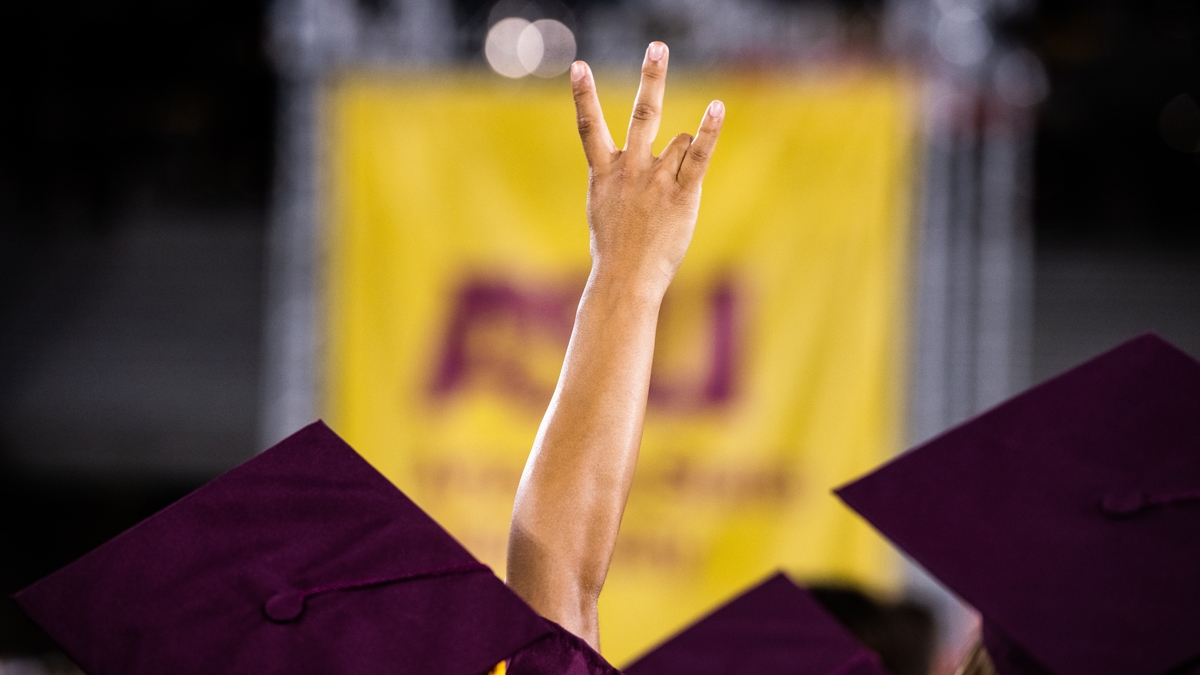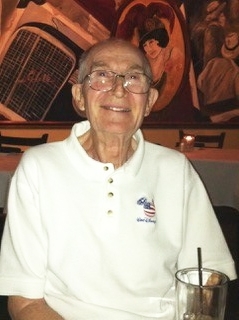When Ronald Youngberg walked through the door of the ASU Speech and Hearing Clinic for treatment following a stroke, no one — not even Youngberg himself — realized the impact he would make on the College of Health Solutions.
Ronald Youngberg
“Dad was really struggling with aphasia, even after completing a therapy program at a local hospital,” said his daughter Paula Webb.
Doctors referred him to the college’s speech clinic for individual and group sessions, where he made significant progress.
“He really enjoyed the group sessions because they gave him an opportunity to socialize with others dealing with similar circumstances,” Webb said.
He would return home from those sessions in much better spirits, sitting down immediately to do his homework for the next week’s session, Webb recalled.
Graduate students often led those sessions as part of their training to become speech-language pathologists. And while Youngberg personally benefited from the therapy, he also felt he was helping the students with their education by giving them hands-on experience.
That’s why, when he passed away in 2014, the family established the Ronald E. Youngberg Scholarship endowment fund to honor their father and provide financial aid for speech-language students. Since 2016, 11 students have benefited from Youngberg’s legacy.
An investment in the future of health
Because the family created an endowment instead of donating a one-time gift, the Ronald E. Youngberg Scholarship has had an exponential impact, said Alma Chavez Strasser, director of development for the College of Health Solutions.
“A one-time gift funds a scholarship or program once, but gifts set up as endowments are invested, and we use the dividends from those investments to honor the donor’s wishes without having to spend the original gift,” she said. “It’s a sustainable legacy.”
Some donors initially believe that establishing an endowment is financially out of reach for them and their families, she said.
“Endowments are feasible for many individuals and families. Pledges can be paid over a number of years, making them more financially attainable,” she added. “A $25,000 donation paid over five years, for example, generates an ongoing investment that makes a difference long after the five-year commitment is completed.”
The power of sustainable gifts
Seeing those gifts in action is the most gratifying part of her job, Strasser said.
“It’s a ripple effect. One student benefits from an endowed scholarship and goes on to affect many lives and improve health and quality of life in astounding ways,” she said.
Kristopher Singleton is one such student. Inspired by a speech therapist he once job shadowed in his Detroit middle school, he came to ASU to pursue speech-language pathology after seeing one therapist have to split her time among five schools in his impoverished school district. The scholarship he received allowed him to complete his degree and work toward his dream of opening an affordable speech clinic for the children living in poverty in his former neighborhood.
Katie Sennhenn is another scholarship recipient whose experience as a childhood cancer survivor led her to pursue a healthy lifestyles coaching degree. She works in a children’s cancer clinic as a financial adviser and is combining her personal experience and academic knowledge to be an advocate for cancer patients and their families.
“I want to help them through their cancer journeys with minimal debt and stress, and also help them see that there is light for a normal healthy life on the other side of their devastating diagnosis,” she told her donor after receiving the scholarship.
A solid foundation
All endowed gifts are managed through the ASU Foundation’s endowment, a fund that has grown from $250 million to $1.25 billion since 2004. Donors and their families receive personalized annual reports on their endowments and are encouraged to engage with the college and the students so they can see firsthand how their investment continues to make an impact.
That impact is significant. The ASU Foundation currently manages 17 endowments for the College of Health Solutions with a value of nearly $2 million. Last year, the yield from those funds allowed the college to award 20 scholarships to students like Singleton and Sennhenn, whose passion to improve health will impact population health and well-being for years to come.
To learn more about creating a lasting legacy on health through sustainable giving, contact Strasser at alma.strasser@asufoundation.org or 602-540-2312.
More Health and medicine
ASU team part of nationwide study looking at Type 2 diabetes in youth
Near the end of an interview in which he talked about the work his team will be doing to tackle the rise in Type 2 diabetes among youth, Arizona State University Professor Gabe Shaibi answered why…
Leading the way in wellness: ASU highlighted in The Princeton Review's 2025 Mental Health Services Honor Roll
Being a college student isn’t easy — navigating new routines, people and places can be a challenge, especially if the right support system is not in place. That's why Arizona State University is a…
New Indigenous health dashboard offers robust database for scholars
By Nicole Greason and Kimberly Linn A team at Arizona State University’s College of Health Solutions and American Indian Studies program has created a new tool to aid researchers…

